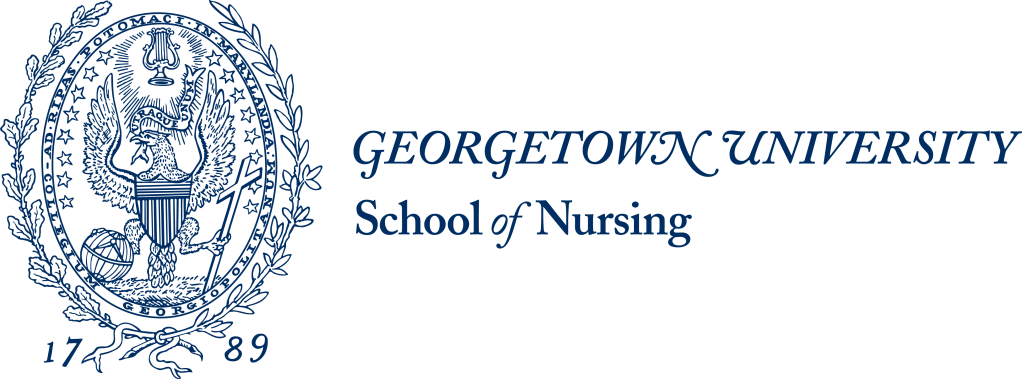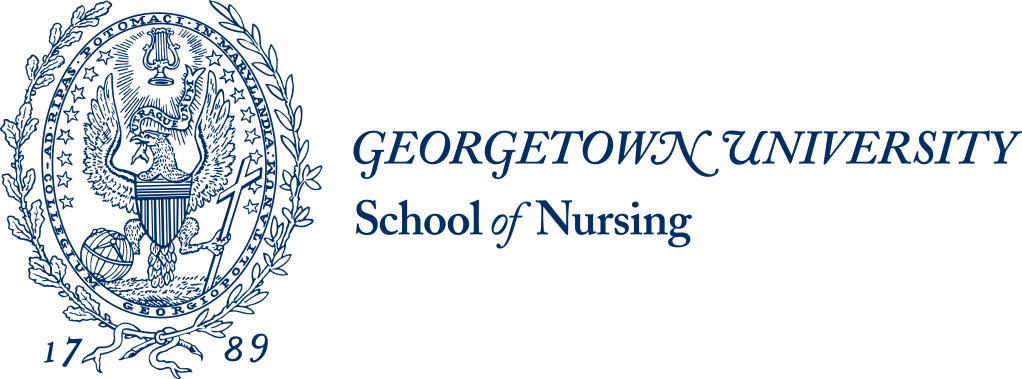The Future of Nursing Is in Your Hands
The COVID-19 pandemic has permanently reshaped the way we approach health care in the U.S. — and the future of nursing depends on leaders like you.
When you earn your Master of Science in Nursing (MSN), you can achieve greater autonomy in your career, provide a higher level of care for your patients and leave your mark on the health system as an advanced practice registered nurse (APRN).

Online Master of Science in Nursing
Simmons University offers one online family nurse practitioner (FNP) program: the MSN — FNP for RNs with a bachelor’s degree.
- Time to complete: 32–44 months (RN to MSN — FNP)
- Credits: 48–68
- Clinical hours: 672–836
- Campus visits: One 3-day immersion weekend in Boston
Find out if you qualify for a scholarship of up to $15,000 for Simmons’ September cohort.

Online Master of Science Degree in Nursing
The Georgetown University School of Nursing (GUSON) offers four APRN specializations for its online MS in Nursing — FNP, AG-ACNP, NM/WHNP and WHNP — enabling you to provide the highest level of care for the population you are most drawn to serve. BSN required to apply.
- Time to complete: As few as 23 months
- Credits: 40–49
- Clinical hours: 600–1,000
- Campus visits: 2–3 on-campus intensives in Washington, DC
Board certification rates are above the national average, with some specializations reaching 100%.2

Become a Future-Focused Nurse
#2
Fastest-Growing Job in the U.S.3
45%
Projected Job Growth From 2019–2029 (more than 11 times the national average)4
In addition to an unprecedented demand for APRNs, the COVID-19 pandemic has led to a surge in telehealth that may indicate what the future of health care delivery will look like.
By earning your MSN online, you will get a head start on confidently and effectively communicating online, so you can meet your future patients where they are without obstacle.
1The Simmons University and national pass rates listed are averages of 2019 scores for the AANP and ANCC exams. The Simmons graduate pass rate statistic includes both on-campus and online students who took the exams in 2019. arrow_upwardReturn to footnote reference
2This statistic reflects certification rate information for graduates of Georgetown University’s MS in Nursing program in 2019. The national pass rates were as follows: 2019 ANCC certification rate for AG-ACNP: 91%; 2019 AACN certification rate for AG-ACNP: 74%; 2018 AANP certification rate for FNP: 85%; 2017–19 AMCB average certification rate: 86.15%; 2019 NCC certification rate for WHNP: 91%.arrow_upwardReturn to footnote reference Return to footnote reference
3Bureau of Labor Statistics (Sept. 1, 2020). Occupational Outlook Handbook: Fastest Growing Occupations. Retrieved Oct. 19, 2020. arrow_upwardReturn to footnote reference
4Bureau of Labor Statistics (Sept. 1, 2020). Occupational Outlook Handbook: Nurse Practitioners. Retrieved Oct. 19, 2020. arrow_upwardReturn to footnote reference




